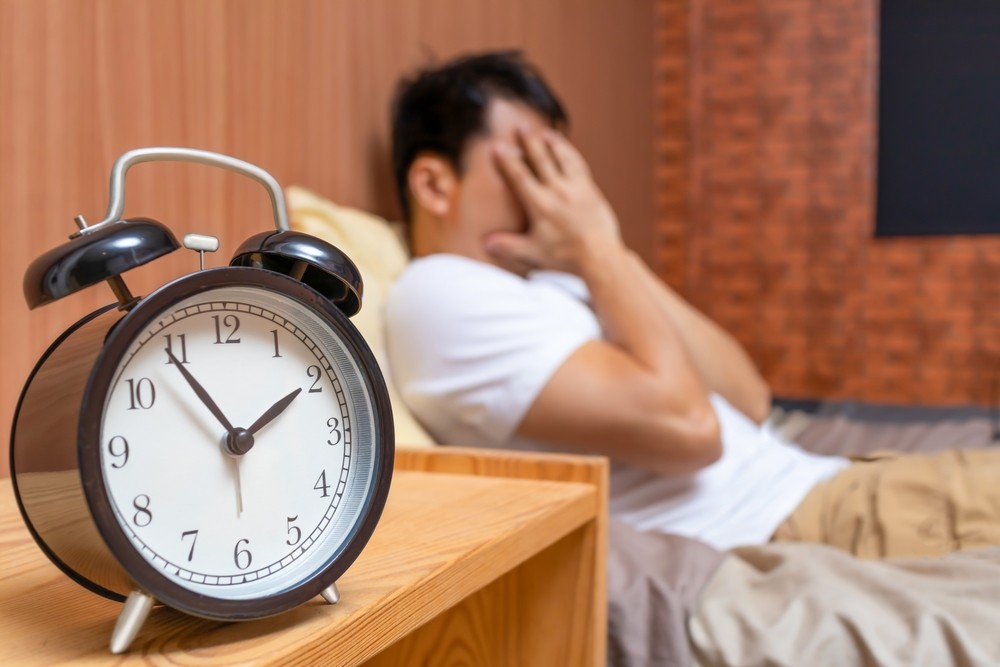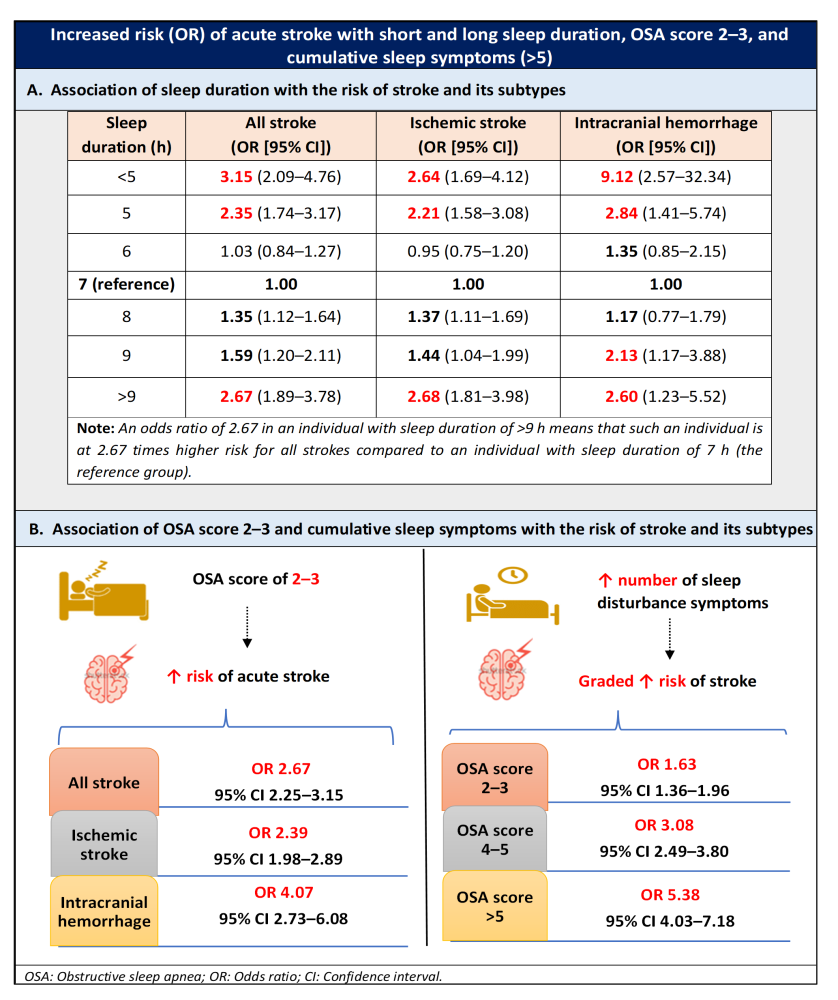
A new study by Mc Carthy et al., recently published in “Neurology” reported that the symptoms of sleep disturbances viz., short (<5 h) and long (>9 h) sleep duration, poor sleep quality, difficulty to fall asleep, unplanned/prolonged naps, snoring, snorting, and breathing cessation during sleep (sleep apnea) are associated with an increased risk of acute stroke. Each of the symptom of sleep disturbance showed independent association with elevated risk of stroke. In addition, cumulative increase in the symptoms of sleep disturbance showed graded increase in the likelihood of stroke risk, i.e., as the number of symptoms increased, the odds for stroke risk increased. The results indicate that the symptoms of sleep disturbance can be a key modifiable risk factor for stroke and can be targeted for stroke prevention.
This study was a large, international, case-control study of risk factors for stroke (INTERSTROKE) that included 4,496 participants and aimed to assess the link between the symptoms of sleep disturbance and the risk of acute stroke. The participants comprised cases who experienced stroke ([n = 2,243; 63 years of age] with first acute stroke as per the World Health Organisation clinical definition and within 72 hours of current symptom onset or ‘last seen without deficit’, and had an imaging scan available or planned within 1 week of presentation) and controls without a history of stroke ([n = 2,253; 62 years of age], matched by age [+/- 5 years] and sex. Out of all the cases, 1,799 participants had ischemic stroke and 439 participants had intracranial hemorrhage.
A sleep questionnaire was used to evaluate sleep behaviors in the previous month (for cases, the month before stroke was considered). Association of symptoms of sleep disturbance with acute stroke was determined by conditional logistic regression and expressed as odds ratio (OR) and 95% confidence intervals (CI). The primary model was adjusted for age, occupation, marital status, and modified-Rankin Scale (measures the degree of disability/dependence in daily activities after stroke) at baseline. The results from the primary model are summarized below:
- Short sleep duration (<5 h) was associated with 3 times higher likelihood of risk of stroke (OR 3.15) whereas long sleep duration (>9 h) was associated with more than twice the risk of stroke (OR 2.67). Estimated risk of stroke and its subtypes according to sleep duration are highlighted in Graphic A.
- Snoring (OR 1.91), snorting (OR 2.64), and breathing cessation during sleep (OR 2.87) doubled the odds of stroke risk.
- Prolonged napping (>1 h), unplanned napping, impaired sleep quality, difficulty getting to sleep, and frequent waking were also significantly associated with an increased risk of acute stroke.
- Obstructive Sleep Apnea (OSA) score of 2–3 and cumulative sleep symptoms (>5) were associated with a significantly greater risk of acute stroke. Increasing symptom burden had an additive effect on the risk of stroke, i.e., presence of >5 symptoms were associated with 5 times increased likelihood of acute stroke (Graphic B).

Clinical implications
- Presence or absence of symptoms of sleep disturbance helps in identifying individuals at high risk of stroke, thus serving as markers for increased individual risk, or representing independent risk factors.
- Similar increased risk of stroke was observed for individuals who were unsure about OSA-related symptoms and those who reported symptoms of OSA. This indicates a potential lack of awareness of OSA symptoms among the participants, thus suggesting the need for questionnaire-based OSA screening in clinical practice.
- The study highlights the importance of considering interventional studies as priority research target in patients with high burden of symptoms of sleep disturbance or individual sleep symptoms. This may help in reducing the global incidence of stroke.
(Source: Mc Carthy CE, Yusuf S, Judge C, Alvarez-Iglesias A, Hankey GJ, Oveisgharan S, Damasceno A, Iversen HK, Rosengren A, Avezum A, Lopez-Jaramillo P, Xavier D, Wang X, Rangarajan S, O’Donnell M. Sleep patterns and the risk of acute stroke: Results from the INTERSTROKE international case-control study. Neurology. 2023. Doi: 10.1212/WNL.0000000000207249)
